Photography By Benedict Evans
Larry Kramer's long awaited new novel, The American People: Volume I, subtitled Search for My Heart, is finally seeing the light of day this April. It's just the first volume, though "just" may not be the right word, since it's 800 pages. There are times when the reader will feel like the audience at "Springtime for Hitler." One will also find oneself laughing out loud, thinking hard, and being thrilled that someone has taken on American history from the viewpoint of gay people. The book is the history of syphilis, hepatitis, hatred, ostracism, the settling of America, concentration camps -- American and German -- Jews, the CIA, and something called The Underlying Condition (which we suspect will become, in the second volume, AIDS). It begins in pre-Columbian Florida, with monkeys in the Everglades, and goes on to the Puritans, the American Revolution, the Civil War, and World War II, ascribing same-sex desire to George Washington, Alexander Hamilton, Mark Twain, Abraham Lincoln, and so many other figures central to American history that there is no point in listing them here. It also contains the moving saga of a young boy growing up in Washington, D.C., during World War II, who learns he's a "sissy." In Washington, Kramer writes, "Moderation is everything," but in this novel moderation has no place; with hundreds of characters, from nuns to Nazis, this book is in essence a fantasia on American history. How historians will receive it is hard to predict -- but Kirkus Reviews called it "breathtakingly well written," and the Publishers Weekly reviewer said it left him wondering "what the hell will happen next." To find out, I sat down with Larry in his apartment on Washington Square Park in Manhattan.
I just finished reading your new novel, The American People: Volume I. Is it true that you started writing it in 1975?
I started when I finished f****ts, long before AIDS came along, and I kind of put it to the side. I wrote a couple of plays in between, so it was done in bits and pieces over the years. And it wasn't until I got really sick, when I had the liver transplant [in 2000], that I got serious about making it as a whole. Because I didn't think I was going to live. Now I've got to finish Volume II.
If you started it before AIDS had even emerged, what was the impetus then to write the book? Was it the idea that gays have been written out of history?
Oh, I don't know. Why does every gay writer start out? To write his Proust? And so I wrote my Proust. The title comes from that speech by Reagan which really did hit me, where I knew he was talking about "the American people," and I knew that I was not part of that crowd that he was talking about. It was so obvious. There has never been any history book written where the gay people have been in history since the beginning. It's ridiculous to think that we haven't been here forever. First, I started doing research into people who I felt were important, like Washington and Lincoln, and --
So far we've got George Washington, Alexander Hamilton, the Marquis de Lafayette, Baron von Steuben, Lincoln, Andrew Jackson, Franklin Pierce, James Buchanan, Ralph Waldo Emerson -- which really surprised me -- Hawthorne, Melville, John Wilkes Booth, Mark Twain, Eleanor Roosevelt, of course, James Forrestal, Richard Nixon, Herbert Hoover. You're writing three kinds of history in this book. There were times when you would quote from a book you had read, and you would acknowledge the author and the source. To me, that's just history. Then there were times when I was in a kind of phantasmagoria nightmare scene, and I thought, This is not history anymore; we're now in Larry's imagination. And there's the most deceptive category, the middle, in which it seems to me that you were mixing real source material with imagination. You didn't want to write a history in which you simply extracted little-known facts about gay people in history and put it together as straight history?
No, originally I didn't want to call it a novel, I just wanted to call it The American People and let people figure out what it was. There isn't anything in the book that I don't agree with, or have some belief in, and if I couldn't find some source that would give me the right to say it, I said my version of it, as with John Wilkes Booth. Did you ever look at the pictures of all the guys who were charged with murdering Lincoln?
You go on about how good-looking Lewis Powell [a co-conspirator of Wilkes Booth] was. He was just a real hot number.
A hot number, and he knew it. They were such an unlikely lot of people. And the women had nothing to do with it, and how did they even get together? I had never read anything where they've been able to convince me why they were all in the same group somehow. Just to say they were Southerners and all that shit. I didn't buy that.
So what you're saying in a sense is that you used gaydar?
I used gaydar. What else have I got?
This is a book that starts in the pre-Columbian era in the United States, with monkeys in the Everglades in a kind of James Michener way. You're taken back to the foundation of the continent, and there's a great deal about colonial times, the American Revolution, the Civil War, up to the '50s and the McCarthy era -- and that's just Volume I. So it's this huge, sprawling, wide-ranging thing, which halfway through breaks off into a pretty conventional story about a neighborhood in Washington, D.C., in which one of the characters, Daniel Jerusalem, grows up dealing with the fact that his father beats him up and has called him a sissy.
What then became clear to me was this was really about where did AIDS come from. And by the end of Volume II I will tell you where it came from, and what I think caused it. And what should have been done, that wasn't done. Because, we are gay, they wouldn't do it.
I think most people know or expect this book to be about AIDS. But this is also about German scientists that came to the United States, it's about the science of eugenics, it's about Henry Ford, it's about anti-Semitism, and it's about the four horsemen of the apocalypse, which are amoebas -- what is the line? I love this line.
Piss, shit, amoebas and --
Piss, shit, and it's the history of blood, it's the history of diseases, it's the history of concentration camps. You found a way to write about anything that interested you. The history of syphilis is in this book. How did you know when to leave stuff out?
It was once much longer and it was much wilder. I can write in a crazy way, making things up, and I made a lot of drugs' names up and symptoms up, and then one of the editors, along the way said: "You really don't have to make that up. Why don't you just use the real one?"
What are you expecting reactions to be? You got very good reviews in Kirkus and [Publisher's Weekly].
Oh unbelievable. I always expect to get trashed for everything. I never got a good review before in my life. Even Normal Heart.
How much of Volume II is written?
I'm writing. It has to come out a year after this one. And also, the phenomenal success of the movie of The Normal Heart has touched me a lot. It was one of HBO'S biggest shows ever. And you realize, more people saw my play in those two hours that one night, than you could fill a theater with for years.
 Larry Kramer and his husband, David Webster
Larry Kramer and his husband, David Webster
 Are you doing a sequel to The Normal Heart?
Are you doing a sequel to The Normal Heart?I'm writing it now.
Your life now is basically about your writing, I would think.It's all I live for. If I didn't have my writing right now, I would go crazy. Truly, I don't feel well.
But you feel proud, I'm sure, of Volume I of this book, that you got it out.I don't think that way. I faced death a couple times, and that had me look at this book differently. Imagine what it's like facing death. David [Webster, Kramer's husband] said I almost died three times.
You have something in the book about political activism versus art, and you have an exchange with Tony Kushner. He asks you, "Does it have to be either-or?" And you write back and you say: "No it has to be the same thing. The book is both."My relationship with Tony has been very complicated because I wanted him to deal with Lincoln [in the script he wrote for Spielberg's movie] and he didn't want to indicate in the movie that he was gay.
Are you speaking to him now?Oh yeah, we speak now. We were both upset by it because we were both very fond of each other. But I do get self-righteous about some things.
You said somewhere that the reaction to the Ebola virus was extreme.Well, because it wasn't happening to us; it was happening to
them. There's no question that AIDS has not been attended to because it was conceived of as a gay disease. That's a long time, 35 years, for there still to be so little known about what's happening to us. They still have no idea of how to cure it. Ebola comes along and they all rush over there immediately, and the same people who should have found the stuff for HIV were doing Ebola, and it's going away, it's disappearing, in a very short amount of time, because they are really attending to it. This government is still not attending to HIV. I don't care what anybody says. Not nearly as many people will ever get sick from Ebola as we lost to AIDS.
You said to be a homosexual is as bad as being a Jew. Basically, they are considered populations that can be put in concentration camps, that can be experimented on medically, and can be allowed to die. The Holocaust is huge in this book.Yeah. I came to realize that Hitler got the idea for the Final Solution from the eugenics movement. We gave him that, because that was an American thing. We have killed a lot of people over the years.
Do you think all of that is basically behind us now, that it's just impossible to imagine anything like that being done anymore?Oh, I don't think we're ever behind anything. Certainly America is getting nastier. Look at Guantanamo. Look at all the people we're murdering everywhere.
Do you think gay issues are moving abroad more, now that it's places like Uganda and Russia that really are the firing line for gay rights and gay oppression? In the last year, we've seen a surge of violence against gays in other countries. In the Middle East, ISIS was throwing gays off of rooftops. Is that something that America can export, the idea of tolerance?We should have our own army as gays. I'm quite disappointed in where we are. I mean, it's lovely that we can get married, but that's really small potatoes compared with what we don't have, which is equality.
You're not content with the Human Rights Campaign Fund or any of their progress on gay marriage at the state level?Oh, heavens no, not with them. We don't have any organizations that I look to. ACT UP, I think, was the one great thing that came out of it, and then they destroyed each other. But that was an actual major accomplishment what they achieved, in getting all the drugs out. And we did it. No one else did it for us. HRC is a crock of shit. Because they got a lot of money and what do they do with it? There is no other model except fighting back. Fight. It's not anything you negotiate; it's a thing you threaten. "If you don't do X and Y, we won't do X and Y." That's how you get power. We don't have power, and I don't see any organization that has any power. And that's why ACT UP worked. Once we got it together, we learned how to threaten, and play the good cop/bad cop business, which I had learned in the movie business! Every organization should have both, a good cop and a bad cop. And the good cop makes the initial negotiation, and if it doesn't work, you send out the bad cop to fight. We are not good fighters, gay people.
Who do you think does have power?Powerful is the Koch brothers, who manage to get, through the Supreme Court, the ability to give as much money as you want to any kind of political group, which is destroying everything. Power is all about money. Power is about not sitting back.
What do think of the destruction of the gay social space: the bars, the baths, the cruising places? Or do you think it has been destroyed? Do you think it's still there?[You're] making that a basis of gay life, and it shouldn't be. That was our big problem, that we fought for the wrong things.
For sexual liberation?Yeah. There's more to life than whether you can go to a leather bar. That's part of why we got in all the trouble. I have mixed feelings about Truvada. I'm afraid that people will use it for the wrong reason. But that's no reason not to be glad that it's there.
 What are the wrong reasons?
What are the wrong reasons?To take it as a prophylactic, just so you can go out and fuck at the Mineshaft. So you can take a pill and not worry. And that's, again, what caused all this trouble we're in, in the first place. A lot of people died in 35 years. And I guess I came to realize that I'm angry that I've been allowed to die. I was much more hopeful earlier on. I'm not saying I'm not hopeful, but I'm not hopeful. And part of what depresses me is how passive most of the gay population is about this issue. So now we have Truvada and you can get laid on Saturday night, and surely, we deserve more than that from 35 years of waiting. We could have so much if we just used the power that was there to be taken, if we could just learn how to take it. Why are there still so few people saying that? Why hasn't there ever been another Larry Kramer? And I don't mean that as self-serving.
But Larry, what do we want power for? We want power to have happiness in our own lives. I live in a little town in Florida now, and over the years my street has changed. I now have two women living together two houses down. And a man across the street, a new neighbor, came over right away, and, in a nice way, basically said, "I have no trouble with gay people." It has trickled down to this little street in this little town in Florida where I feel less endangered.You must not accept that as enough, or as all that you're fighting for.
Things have improved in some ways.Oh that's what people say:
Why are you complaining? You have so much now. Well, I don't think we do.
Who's the guy who just came out? Joel Grey?Been trying to get him to do that for 20 years. He replaced Brad Davis in
Normal Heart at the Public. So I've known him a long time. I'm one of the first people he sent the article to, that he'd come out. I don't know why, now, at age 82 [
laughs]. We're so much better than most people, and we're not getting our due for it from them, or even from each other -- how much we contribute to the culture of this country. And none of that has been bought with power. It's been bought with talent. And what would we get if we combined the talent with the amount of money that's available in this population? How second rate the gay people who made it in the government are. When you look at the list of gay presidents, for instance, with the exception of Washington and Lincoln, all the other ones are really just jokes.
Who do you think is the most powerful gay person right now, behind the scenes or in front of the scenes, in governmental life or public life?I have no idea. There are a couple of exceedingly rich gay men who have foundations, such as Tim Gill, Jon Stryker. What is that money buying? We have to be able to get to the people with power, and we still can't do that. You can't call the president and see him like you should be able to. And [Bill] Clinton did us more harm than good.
What do you think about Hillary Clinton?I hope she gets elected. I think she's been around long enough and knows how to play the game that needs to be played. I think she would be more available to us than anyone else.
How do you feel about the state of gay literature these days?I don't follow it very closely. I belong to Lambda Literary, and they put out quite a good newsletter. I still don't see us tackling the big themes. Why is everything sexual? Why is everything about love affairs that do or do not work? We seem very limited in our ambitions.
That's why this book is so extraordinary to me. It's such an act of chutzpah, of taking on absolutely everything.What else is there to take on? What else is there to do with your time? You've experienced as much of life as I have. Did you like the book?
 I was thinking of the word liked, and you don't use the word like with that kind of book. Stunned is the word. It was a roller coaster of a book. There were times when I was laughing out loud, there were times when I was putting the book down, there were times when I was, "yes yes yes," there were times when I said, "Oh this is crazy." I mean, good God, the book bludgeons in a way. Wait till you see what people will tell you. I don't know how they're going to describe this book. It's wonderful that you did it!
I was thinking of the word liked, and you don't use the word like with that kind of book. Stunned is the word. It was a roller coaster of a book. There were times when I was laughing out loud, there were times when I was putting the book down, there were times when I was, "yes yes yes," there were times when I said, "Oh this is crazy." I mean, good God, the book bludgeons in a way. Wait till you see what people will tell you. I don't know how they're going to describe this book. It's wonderful that you did it!Well, it's wonderful that I'm alive to do it. I came close to dying, in this last year. You didn't hear the wonderful story of our marriage? I had the judge, and we were going to be married on my apartment terrace with just a few close friends, and that was on a Monday, and I was taken to the hospital on Tuesday, and Wednesday we were married in intensive care at NYU, after we got permission from the head of NYU, to allow me to be married there. I couldn't sign my name. I wrote X's. I was so out of it. [
Laughs] And that was my wedding. I mean I was out of it. I'm terrified that it'll come back somehow. And for all intents and purposes, they don't know what causes it. It's not unrelated to HIV, but it's not AIDS. So, it's been hard, keeping a grasp on all of these things. I'm grateful that you're doing this at this moment cause it'll help the book...and I have been working on it a long time. It'll be nice to have a place to rest and stay and be remembered. Why do you write?
I couldn't not write. I sometimes ask myself: How do people get through life without writing? I think I write to calm anxiety, to process pain, and I can't imagine not writing. And yet most people live without any reflective space in between their experience and the next experience. Writing to me is reflection. I was a late bloomer in terms of writing. I was not writing like Ed White was out of the cradle.
Did you have fun writing The American People? I sense reading it that it was an intense period.Over such a long period of time, yes. I can't wait to get back to it.
Where does Volume II of the novel start?It starts in the '50s, and goes on from there. What we haven't talked about is J. Edgar Hoover, who's really very prominent in Volume I. Who was monstrous, but gay, and responsible for an amazing number of antigay things in this country. He lived across the street from my best friend, in Washington. And, of course, all the files were burned by the faithful secretary when he died. He ran a whorehouse for men in Washington during the war. There's a lot in the book about people in power who were gay, who used it against gays, and Roosevelt was surrounded by people who didn't like us. Nobody's hands were clean.
Which president would you single out as the worst in U.S. history?Reagan, hands down, no contest. What with his being responsible for not attending to gays and AIDS deaths, he was responsible for killing more people than Hitler or Stalin.
What would you say to those young activists who look to you as a mentor in terms of how to continue the fight?Successful activism is about being angry enough and loud enough to be heard. Choose your issues and your targets, and go after them in any way you think you can. ACT UP chose drugs into bodies. We knew little about the many things we had to learn enough about to be successful, so we taught ourselves. Identify your enemies and go after them with threats. Numbers are nice but one person stationed holding a poster up in a strategic location can be effective. You must not be afraid to be obnoxious or to concern yourself with what others might think of you, particularly other gays. You have a mission. You must care passionately about this mission and make it clear and concise. Do not water it down by including too many items on your agenda. This is not all that complicated. Anger, passion, and volume are your weapons. We all have these within us. The courage to let it come out is the necessary frosting for this cake. Be bold. You'd be surprised how strong you are capable of being.

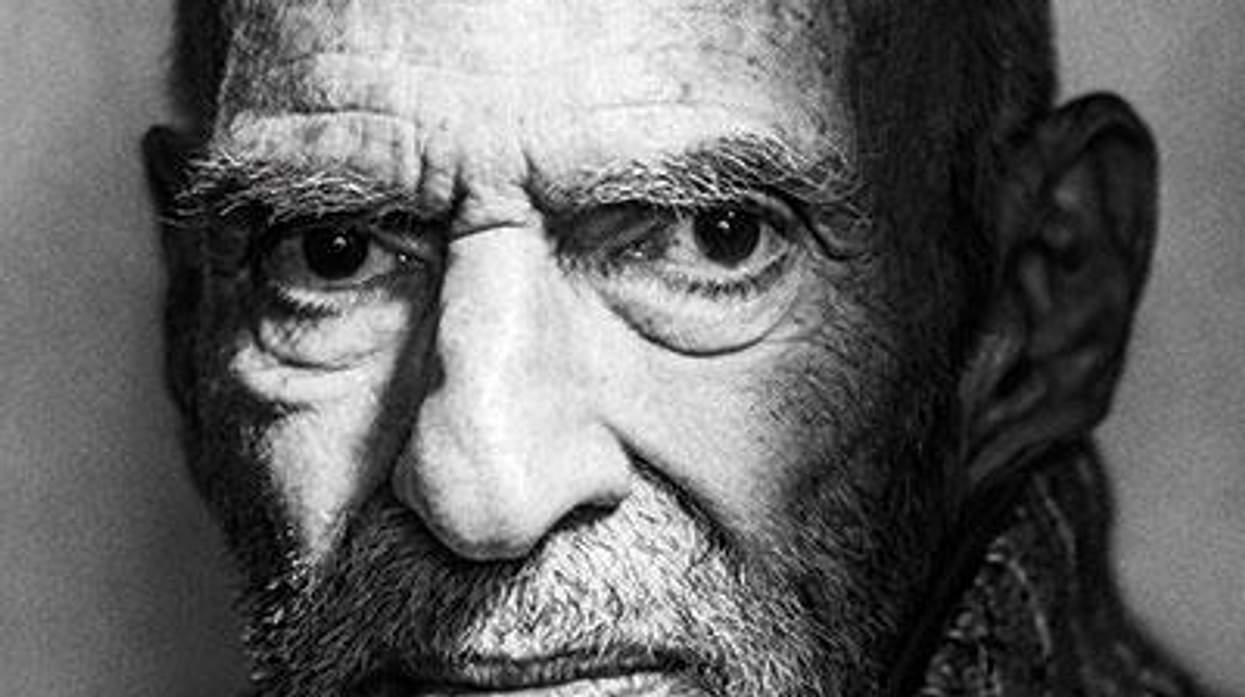

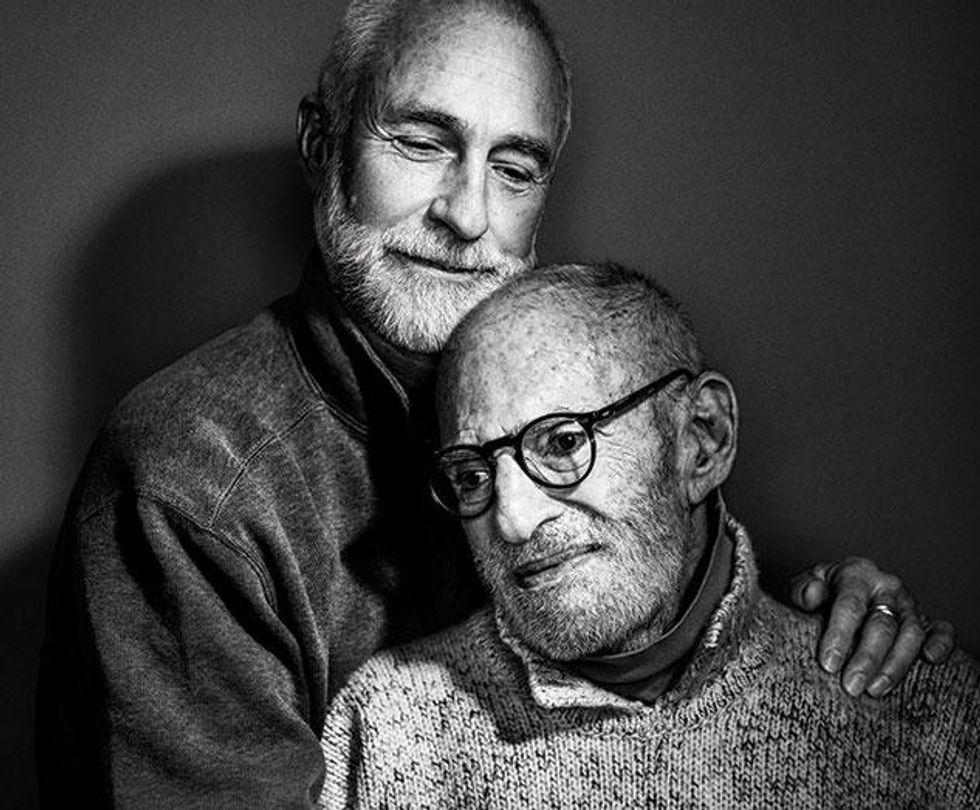
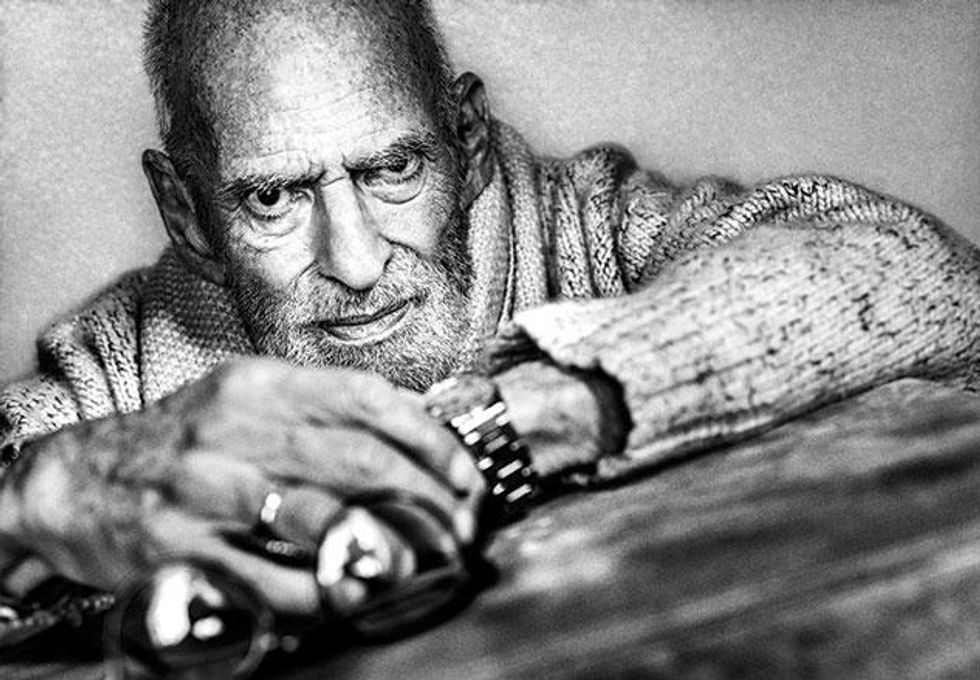
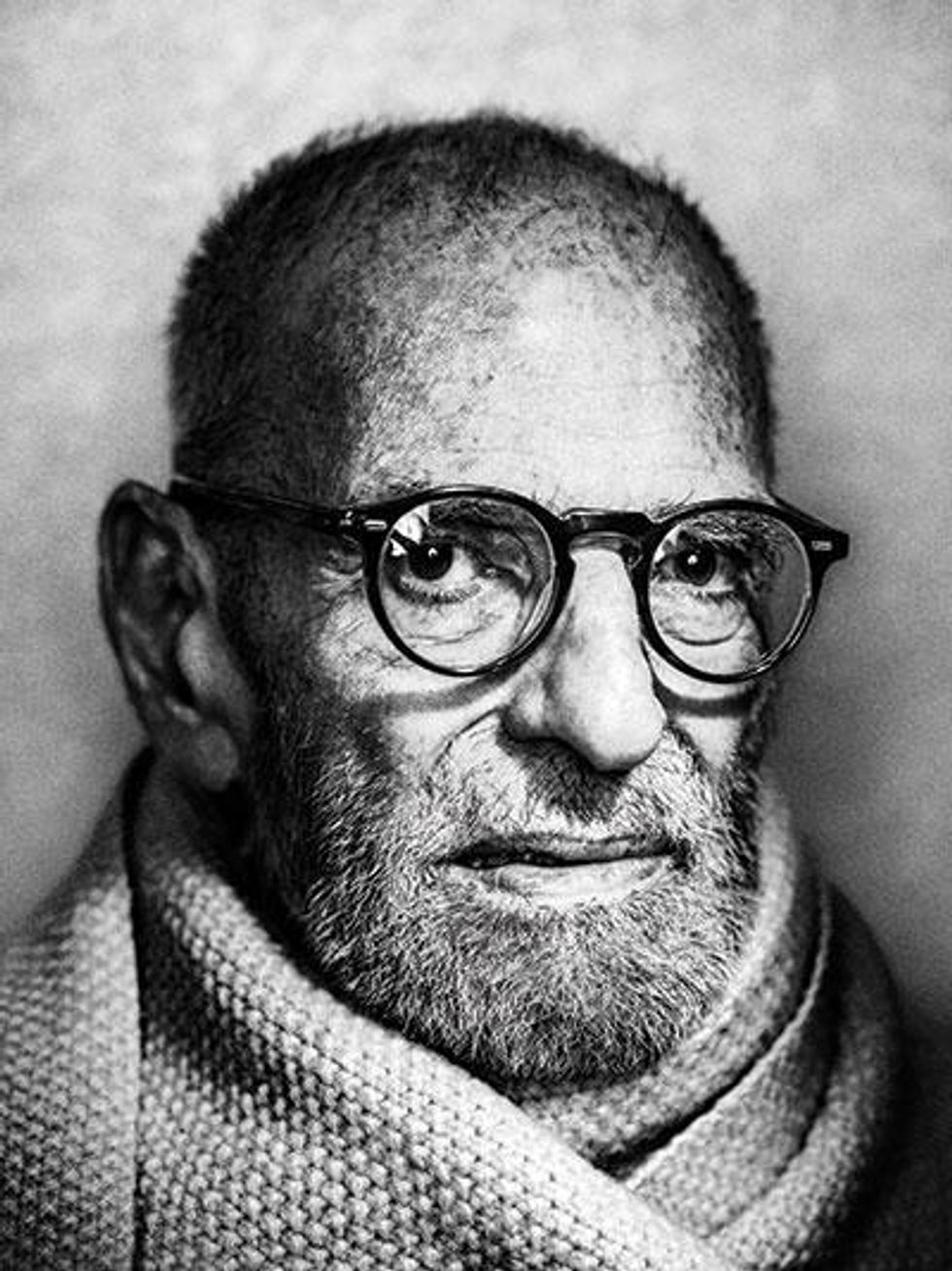 What are the wrong reasons?
What are the wrong reasons?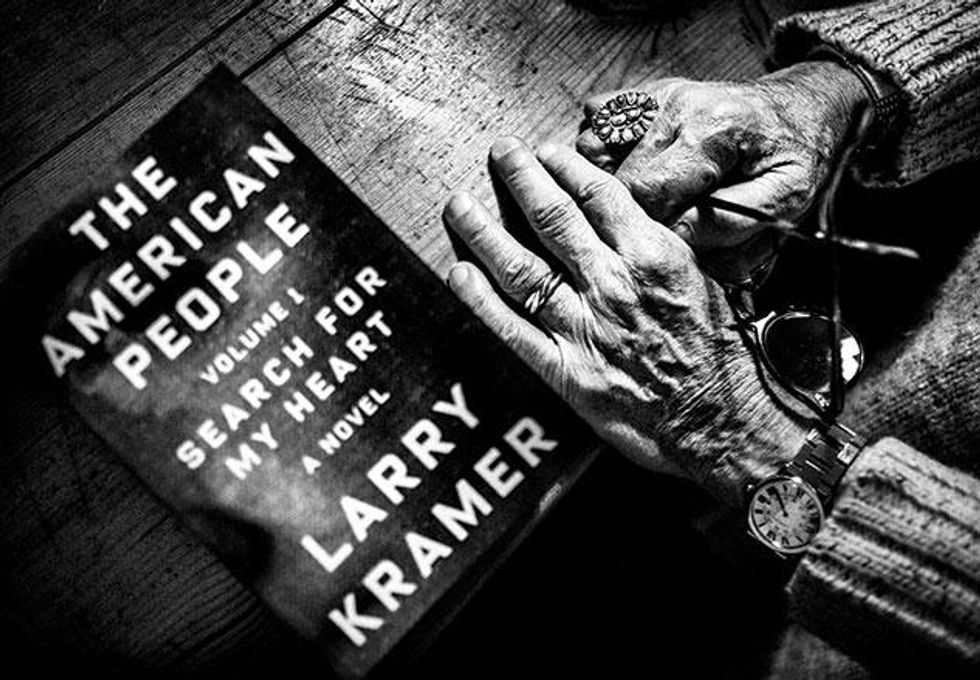
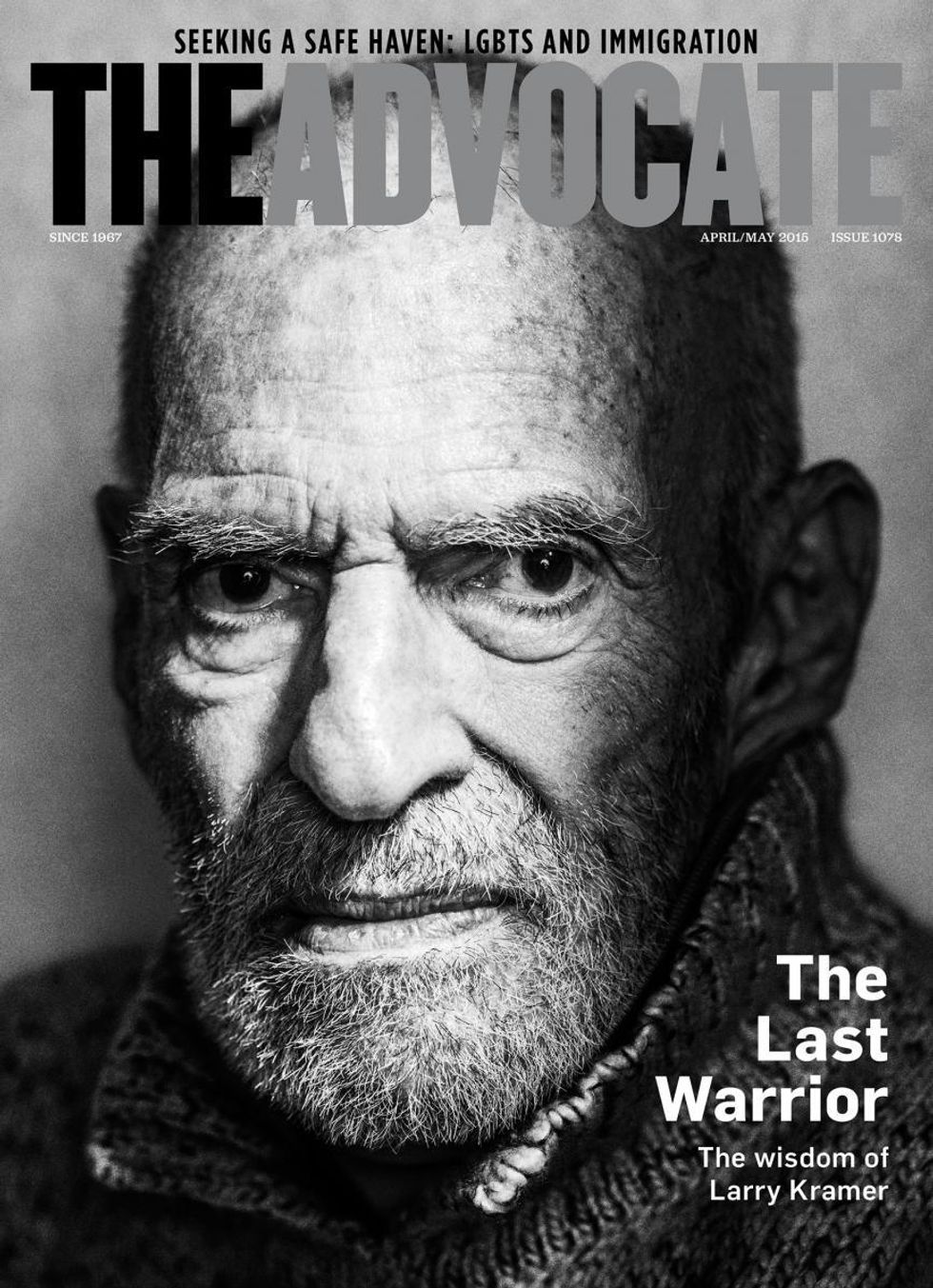
Charlie Kirk DID say stoning gay people was the 'perfect law' — and these other heinous quotes